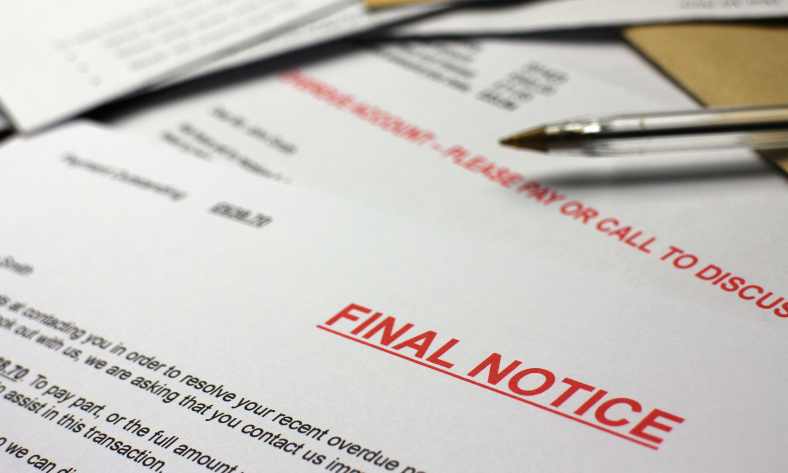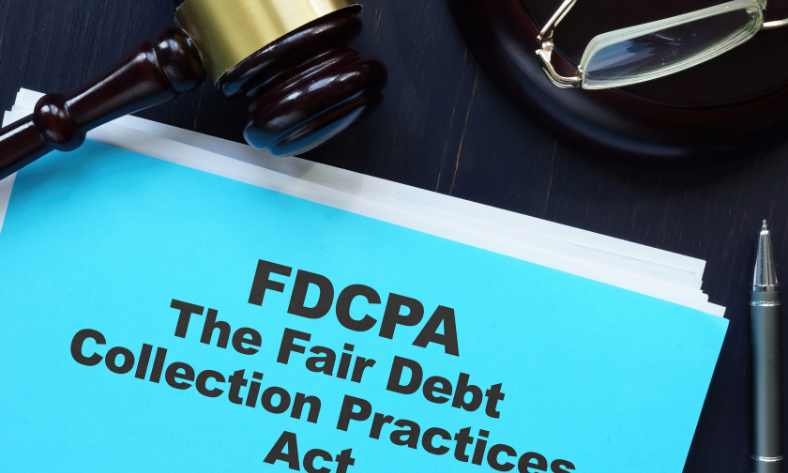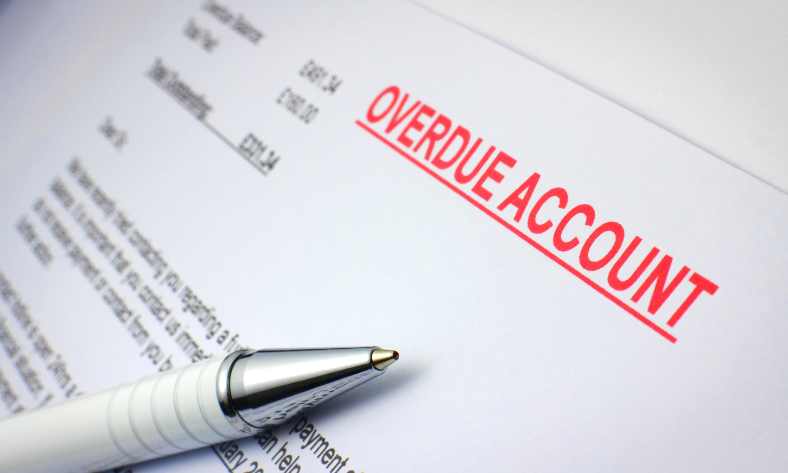When it comes to dealing with debt, one of the most frustrating experiences can be disputing a debt that has been sold to a collection agency. This process can be complicated and intimidating, especially if you don’t know what your rights are or how to go about the process in an effective way. Knowing your rights, understanding the process and being prepared are the keys to successfully disputing a debt sold to a collection agency.
How to Craft an Effective Credit Dispute Letter To A Collection Agency
If you’re dealing with a collection agency, you may be tempted to just pay the debt and be done with it. But if you believe the debt is inaccurate or unfair, you can dispute it. Writing a credit dispute letter is an important step in challenging a collection account – but it’s not always easy to know what to include.
In this blog post, we’ll give you some tips on crafting an effective credit dispute letter. Whether you’re disputing the debt itself or challenging the way the collection agency has handled your account, follow these guidelines and you’ll be on your way to getting results.
Get the name, address, and phone number of the collection agency
If you are dealing with a collection agency, it is important to get their name, address and phone number in order to send a credit dispute letter. In the credit dispute letter, you should include the reasons why you believe the debt is inaccurate or invalid and any supporting documentation that you have.

As soon as you receive acknowledgement of receipt from the collection agency, keep copies of exchange correspondence or records of phone calls made. You can use this documentation if credit report disputes don’t yield results. Knowing how to contact the collection agency is important in order to take appropriate action towards settling a debt and helping repair your credit score.
Find out what the original creditor was and how much you owe
If you are not sure who the original creditor is or how much you owe them, take proactive steps to get that information. Start by creating a credit report dispute letter to send to the collection agency. Include any credit accounts that you do not recognize and ask them for more information about it.
Make sure to request a copy of the credit agreement with the original creditor so you can accurately determine your liabilities. Additionally, make sure to keep copies of all communication regarding this issue with the credit report bureau or collection agencies in case there is any question about what was said or promised.
Gathering as much information as possible will help ensure that your credit score remains intact and your debt is properly addressed in a timely manner.
Gather documentation to support your dispute
Gather any documentation you can to support your credit dispute letter to the collection agency. Having as much evidence supporting your case when dealing with collections will help strengthen your credit dispute letter.
Documentation could include credit reports, invoices, emails, or other records that could be used as proof for why the collection account is in dispute.
This information should be carefully analyzed and analyzed before sending the credit dispute letter – it will give you an opportunity to review inconsistencies and guarantee that only accurate information is presented to the credit bureaus.
Write a clear and concise letter explaining your dispute
Writing credit dispute letters can be overwhelming, especially when including all the necessary information to ensure it is successful.
When drafting a credit dispute letter to a collection agency, make sure to be clear and concise with your explanation.
Include relevant credit and account information, claim a violation of the Fair Credit Reporting Act (FCRA), detail the inaccuracies you are disputing, specify the type of credit report corrections you are requesting, provide any supporting documentation for use as evidence for your credit dispute case and be sure to sign and date the letter.
Writing a clear and concise credit dispute letter is essential in order for it to be successful.
Send the letter via certified mail with return receipt requested
When sending a credit dispute letter to a collection agency it is important to ensure that your request for proof and validation of the debt has been received by the company.
The best way to do this is by sending your credit dispute letter via certified mail with return receipt requested. This allows you to track the delivery of your credit dispute letter, as well as acknowledge its receipt when received.
Additionally, keep in mind that credit disputes generally need to be sent within 30 days from when you first received notice of delinquent payments, so use certified mail to make sure your credit dispute letter reaches its destination on time.
Follow up with the collection agency if you don’t hear back within 30 days
If you have sent a credit dispute letter to a collection agency but do not receive a response within 30 days from the time you sent it, then it is highly recommended that you follow up with them with a call or email.
The credit dispute process is often lengthy, and the collection agency’s silence could be indicative of different steps of the process underway. Keeping in contact and following through with regular progress checks can help ensure that your credit dispute is treated effectively and efficiently.
It also gives you an opportunity to ensure that the details in your credit dispute letter have been accurately communicated by the credit bureau or other parties involved in resolving your credit issue.
If you find yourself dealing with a collection agency, there are steps you can take to protect yourself and your credit score.
First, get the contact information for the collection agency and find out what original creditor you owe and how much is outstanding.
Second, gather any documentation that supports your dispute of the debt.
Third, write a clear and concise letter explaining your dispute.
Fourth, send the letter via certified mail with return receipt requested so that you have proof of delivery.
Finally, follow up with the collection agency if you don’t hear back within 30 days. By following these simple steps, you can put yourself in a better position to deal with a collection agency.
How To Dispute a Debt Sold to a Collection Agency
A debt that has not been paid can be sold from the original creditor to a collection agency.
When this happens, the collection agency is now responsible for recovering the debt and may take aggressive measures to get it back.
If you believe that you do not owe the debt or owe less than is being claimed, you may want to dispute it with the collection agency. Knowing how to dispute a debt with a collection agency can help protect your rights and put an end to any stress associated with the debt.

Understand the Fair Debt Collection Practices Act (FDCPA)
The Fair Debt Collection Practices Act (FDCPA) was created in 1977 as a way of protecting consumers from unfair debt collection practices.
The FDCPA prohibits harassing tactics, such as repeated phone calls or threats of legal action. It also requires that all communications from collectors be clear and provide detailed information about the debt, including proof of ownership.
Knowing these laws and understanding your rights under them will give you power when disputing a debt with a collection agency.
Dispute in Writing
When disputing a debt, it is important to do so in writing. This is because written communication provides evidence if there are ever any disputes regarding what was communicated between you and the collector later on down the road.
Make sure to send your letter via certified mail with return receipt requested so that you have proof it was delivered to its intended recipient.
Additionally, keep copies of all correspondence for yourself as well as any other relevant documents like bills or court orders related to the debt in question for future reference if needed.
Negotiate a Settlement Agreement
If you are unable or unwilling to pay off the entire amount owed on your account, negotiate an agreement with the collector where they agree to accept less money than what is owed as full payment towards settling your account balance in exchange for closing out your account completely.
Negotiations should always be done in writing and signed by both parties before any payments are made so that there is proof of what was agreed upon should either party default on their end of bargain later down the line.
Disputing a debt sold to a collection agency can be intimidating but knowing how is half the battle won!
Understanding your rights under Federal law helps protect you against unfair practices while negotiating an agreement can end up saving you money while still settling your account balance completely without incurring further fees or interest charges along the way.
Taking these steps will ensure that whatever resolution comes out of this situation will be fair by both parties involved and secure peace of mind moving forward into financial freedom!

The Best Reason to Put When Disputing a Collection
A collection account can be a serious issue for your credit score, so it’s important that you understand the best way to handle any disputes. If you’re dealing with collections, then it’s essential that you know what the best reason is to put when disputing a collection.
What is a Collection?
Before we discuss disputing a collection, let’s quickly define what a collection is for those who may not be familiar with the terminology. A collection occurs when an unpaid debt gets sold by the original lender or creditor to a third-party debt collector. Once this happens, the debt collector will contact you and attempt to collect payment from you. This can have negative effects on your credit score if not handled properly.
Why Dispute a Collection Sold To a Collection Agency?
It’s important to dispute collections because they can have long-term consequences on your credit score and financial future.
If you dispute correctly, then it could potentially have beneficial effects down the road such as lower interest rates or better loan offers.
Plus, if enough time has passed since the debt was incurred, collections can be removed from your report altogether!
What is the Best Reason to Put When Disputing Collections?
The best reason to put when disputing a collection is “not mine” or “I don’t recognize this debt”.
This means that either you don’t owe the money or that someone else may have charged something in your name without your knowledge.
It’s important that if neither of these are true for your situation that you don’t use them as an excuse – this could lead to serious legal consequences for lying about debts owed! You should also make sure that all of your information is accurate and up-to-date before submitting any disputes.
Disputing collections is an important step in maintaining good credit health and ensuring that you are getting fair loan offers in the future.
It’s essential that disputes are done correctly in order for them to be effective – using “not mine” or “I don’t recognize this debt” as reasons when disputing collections are usually safe bet!
Doing so properly can help improve your credit score over time and open up new opportunities for financial success down the line. So make sure that if you’re dealing with collections, you take care of them promptly and accurately!
How to Dispute a Collection and Get It Removed
If you’ve received a notification from a collection agency, chances are you want to know how to dispute the debt and get it removed from your credit report. The good news is that it is possible to dispute collections and have them removed. Here’s what you need to do.
Check Your Credit Report
First, you need to check your credit report for accuracy. You can obtain a free copy of your report annually from each of the three major credit bureaus (Equifax, TransUnion, and Experian) or go to AnnualCreditReport.com, which is also free.
You will want to make sure that all information on the report is accurate before disputing any collections. If there are mistakes or inaccuracies, you can dispute them with the credit bureaus directly.
Gather Documentation
You may need to gather documentation such as proof of payment or proof that the debt was discharged in bankruptcy. This can include bank statements, canceled checks, letters from creditors or other documents showing evidence that the debt has been paid off or discharged in bankruptcy court.
Having documentation like this can help show that the debt should not be on your credit report if it has already been paid off or discharged in court. You will also want any documents related to communication between yourself and the collection agency—such as emails or letters—as these can help prove your case if needed.
Dispute with Collection Agency
Once you’ve gathered all of your documents, contact the collection agency directly and explain why you are disputing their claim. Be sure to provide any evidence that supports your claim—such as proof of payment or evidence of bankruptcy discharge—and request that they remove the item from your credit report if necessary.
The collection agency may respond with an offer for settlement; however, be sure to read through any agreement carefully before signing anything!
Disputing a collection on your credit report is not always easy, but it is possible! Be sure to check your credit report for accuracy first and then gather any necessary documentation such as proof of payment or evidence of bankruptcy discharge before contacting the collection agency directly and explaining why you are disputing their claim.
Then provide evidence supporting your case and request they remove it from your credit report if applicable. With patience and persistence, you may be able to successfully dispute collections and get them removed from your credit report!
Disputing a Collection Agency Debt: Pros and Cons
You may have heard that disputing a debt with a collection agency can be beneficial, but is it really? While it is true that disputing a debt can help you out of a tight spot, there are also some risks associated with the practice. So before you dispute any debts, it’s important to understand the pros and cons so that you make an informed decision.
The Benefits of Disputing Your Debt
The primary benefit of disputing your debt with a collection agency is that it can help you reduce or even eliminate the amount you owe.
If the dispute is successful, the collection agency may be willing to settle for less than what they initially asked for. This can be especially helpful if you don’t have enough money to pay off your entire debt in one payment.
Additionally, disputing your debt may also result in additional time being added to the statute of limitations on your debt, allowing you more time before the debt must be paid off in full.
Potential Risks Involved With Disputing Your Debt
While disputing your debt with a collection agency can certainly provide some relief, there are some potential risks associated with doing so.
For one thing, if the dispute is unsuccessful, then not only will you still owe the full amount of your original debt—you will likely also incur late payment fees and other penalties from the collection agency as well.
Additionally, disputing your debt could potentially damage your credit score if it takes too long to resolve or if information regarding the disputed debt ends up appearing on your credit report.
Disputing a collection agency debt can certainly be beneficial in certain situations; however, there are also potential risks involved that should be taken into consideration before attempting to do so.
It’s important to remember that while it’s possible to negotiate down or even eliminate some of this type of debt through dispute resolution processes like mediation or arbitration, these methods are not always successful and can sometimes backfire on unsuspecting consumers.
Therefore, it’s best to research all available options carefully before taking any action.
Ultimately, by weighing all of your options carefully and understanding both sides of the issue—the benefits as well as potential risks—you should be able to make an informed decision about whether or not disputing a collection is right for you.
What To Do If You Can’t Get The Collection Agency To Remove Your Debt Directly
Sending a 609 Dispute Letter to Remove Negative Credit History
Disputing wrong or outdated negative items on your credit report is an important step in improving your credit score. One way to do this is by sending a 609 dispute letter. It’s a formal way of asking the credit reporting agency to remove inaccurate information from your report, and it can be done free of charge. Let’s take a look at how to send a 609 dispute letter.
We just wrote a MASSIVE article on 609 Credit Dispute Letters that you should check out here.
What Is a 609 Dispute Letter?
A 609 dispute letter is a written request you can use to dispute errors on your credit report. This type of letter is sent directly to the credit bureau that issued the error.
The number “609” refers to the section of the Fair Credit Reporting Act that outlines how consumers can dispute their credit reports and what their rights are under the law. You only need one 609 letter for each disputed item, but there are certain steps you have to take first.
Gather Your Documentation
Before you start writing, collect all documents related to the incorrect information on your credit report. This could include paperwork from creditors, collection agencies, lenders, etc., that show proof that an account was paid off or closed in full prior to being sold or reported as delinquent by a creditor or collection agency.
Make copies of any documents that prove you paid off any outstanding balances due; this will help support your claim if the creditor disputes it with the bureau later on.
Write Your Letter
Now it’s time to write up your 609 dispute letter and provide as much detail as possible about why you are disputing an item and why it should be removed from your credit report.
Include any relevant documentation along with the letter, such as copies of bills showing payment in full or evidence that shows an account was never opened in the first place.
Make sure you keep track of when and where you sent your letters so you can follow up if necessary down the road.
How A 609 Dispute Letter Can Help You
Writing a 609 dispute letter can help remove inaccurate information from your credit report and improve your overall financial health over time. Before beginning, make sure you have all relevant documentation supporting why something needs to be removed.
Then, write up a detailed letter explaining everything clearly and concisely while following all applicable laws set forth by the Fair Credit Reporting Act (FCRA). Doing so may help restore some peace-of-mind—as well as give your credit score some much-needed love!
Know Your Rights
In conclusion, understanding the debt collection process and how to dispute a debt sold to a collection agency is essential. Knowing your rights, understanding the Fair Debt Collection Practices Act, and having a clear plan of action can ensure that you are not taken advantage of by the collection agency.
It is important to remember that you do have options if you’re in this situation and should not feel helpless or overwhelmed. Taking the appropriate steps can help you navigate the process and get back on track with your finances.

Erika Finn, founder of Credit Help, is an attorney who graduated from law school (JD) at University of California, Berkeley and is a member of the California Bar Association. She was a member and editor of the California Law Review and won the Prosser Prize for Legal Accounting. She holds a Master’s Degree (MFA) from the University of Southern California (USC) and a Bachelor’s degree (BA) from Indiana University- Bloomington with highest distinction.
Credit Help believes that everyone should have access to helpful, free information about how to raise their credit rating.
Articles on Credit Help are not legal advice or financial advice.